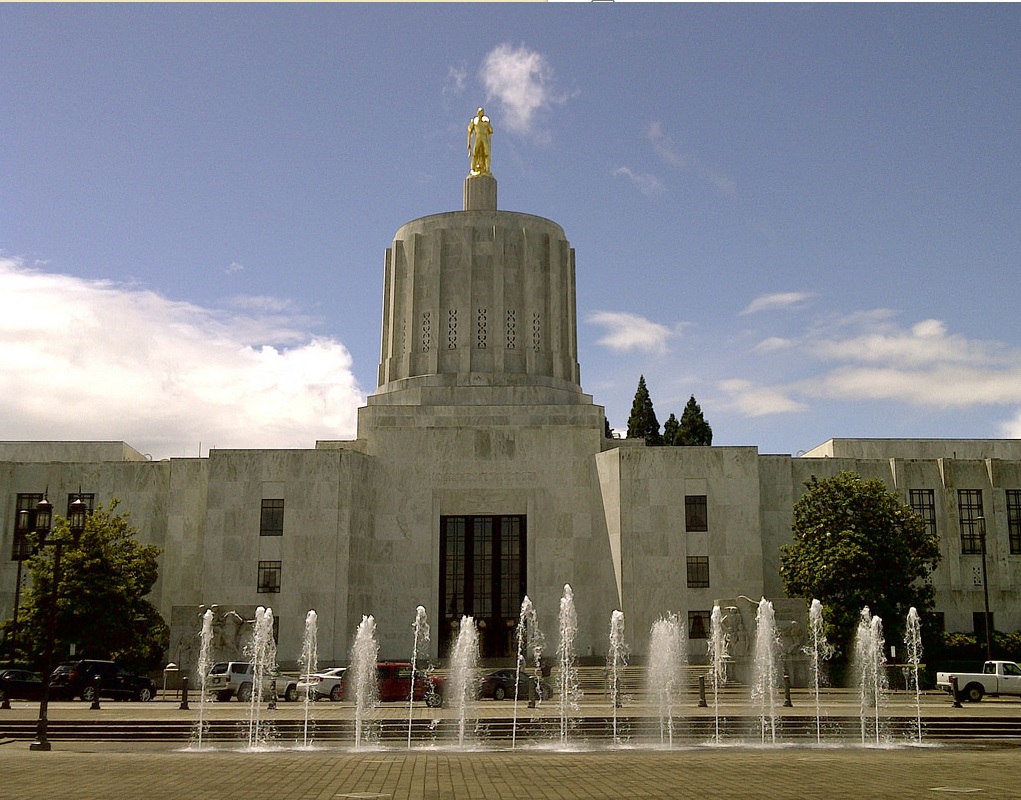 [5]
[5]
By Liani J. Reeves [6]
Bullard Law [7], Oregon law firm
As the Oregon Legislature has been publicly forced to respond to allegations of workplace sexual harassment occurring in its own halls, Senate Bill 726, also known as the Oregon Workplace Fairness Act, passed through both chambers without much resistance. The Senate passed the bill 23-6 while the House passed the bill with unanimous support—60 out of 60 voted in favor of passage.
The Oregon Workplace Fairness Act (“the Act”) has implications far broader than addressing sexual harassment in the Oregon Legislature. First, the Act applies to all employers—public or private—who have employees in Oregon. Second, the Act does not just apply to sexual harassment, but covers discrimination and harassment based on all protected classes under Oregon law (race, color, religion, sex, sexual orientation, national origin, marital status, age, expunged juvenile record, uniformed service, and disability) including conduct that constitutes sexual assault (“prohibited conduct”). Sexual assault is defined as “unwanted conduct of a sexual nature that is inflicted upon a person or compelled through the use of physical force, manipulation, threat, or intimidation.” Third, the Act imposes a number of new requirements and restrictions on employers aimed at combatting harassment and discrimination inside and outside of the workplace, attempts to create more transparency and accountability for workplace harassment and discrimination, and greatly expands the ability for those subject to harassment and discrimination to pursue remedies. An overview of the major provisions of the Act is as follows.
New Unlawful Employment Practices
The Act makes it an unlawful employment practice for an employer to enter into agreements that include non-disclosure or non-disparagement provisions that prevent an employee or prospective employee from disclosing or discussing prohibited conduct that occurred between employees or between an employer and an employee in the workplace or at a work-related event that is off the employment premises and coordinated by or through the employer, or that occurred between an employer and an employee off the employment premises. There are limited exceptions, discussed below.
Restrictions on Non-Disclosure, Non-Disparagement, and No-Rehire Provisions
The Act provides that an employer may enter into an agreement that includes a non-disclosure, non-disparagement, or no-rehire provision only under the following circumstances:
- With an employee claiming to be aggrieved by prohibited conduct: A provision is allowed only when the aggrieved employee requests such a provision and only with a seven-day revocation period in which the aggrieved employee can revoke the agreement.
- With an employee who has been alleged to have engaged in prohibited conduct: A provision is allowed if the employer makes a good faith determination that the employee has engaged in the protected class discrimination. In the case of an employee who has been alleged to engage in prohibited conduct, the employee does not have to request the provision and the employee does not have to be afforded the seven-day revocation period.
New Policy Requirements
The Act requires that every employer shall adopt a written policy that contains procedures and practices for the reduction and prevention of protected class discrimination. At a minimum, the policy must:
- Provide a process for an employee to report prohibited conduct;
- Identify an individual and an alternate individual designated to receive reports;
- Include the statute of limitations period applicable to an employee’s right of action alleging prohibited conduct;
- Include a statement that an employer may not require or coerce an employee to enter into a non-disclosure or non-disparagement agreement;
- Include an explanation that an employee claiming to be aggrieved by prohibited conduct may voluntarily request to enter into a non-disclosure or non-disparagement agreement with a seven-day revocation period; and
- Include a statement that advises employers and employees to document any incidents of prohibited conduct.
BOLI is tasked with making available on its website model procedures or policies that employers may use to comply with this requirement. The Act also prescribes the employer’s responsibility for distributing the policy:
- Make the policy available to employees within the workplace;
- Provide a copy of the policy to each employee at the time of hire; and
- Require any individual designated to receive complaints to provide a copy of the policy to an employee at the time the employee discloses information regarding prohibited conduct.
Voids Certain Employment Agreements with Offending Employees
The Act provides that employers may void certain provisions of employment agreements with supervisors or managers that would otherwise require a payment of severance or separation payments when the employer determines that the person has engaged in prohibited conduct and that such conduct was a substantial contributing factor in causing the separation from employment.
Increases the Statute of Limitations
The Act increases the statute of limitations for filing a claim alleging prohibited conduct with BOLI or a civil action from one year to five years. For claims alleging discrimination and harassment based on a protected class, the five year statute of limitations comes into effect for conduct that occurs on or after the effective date of the Act. For claims based on an unlawful employment practice involving the use of non-disclosure and non-disparagement claims, the five year statute of limitations comes into effect on October 1, 2020.
Employer Next Steps
The Act itself becomes operative in the fall (91 days after the Legislature adjourns), but most provisions will go into effect October 1, 2020. Employers should start preparing for the law by taking the following steps:
- Review and revise employer discrimination and harassment policies to bring them into compliance with the new policy requirements.
- Given the expanded statute of limitations for claims, employers will want to revisit policies, procedures and collective bargaining agreement provisions that govern document retention.
- Review carefully and/or consult legal counsel before entering into a non-disclosure, non-disparagement, or no-rehire clause with an employee who has made a claim of or been accused of prohibited conduct.
As always, we will keep you updated on any developments and are available to assist with questions.